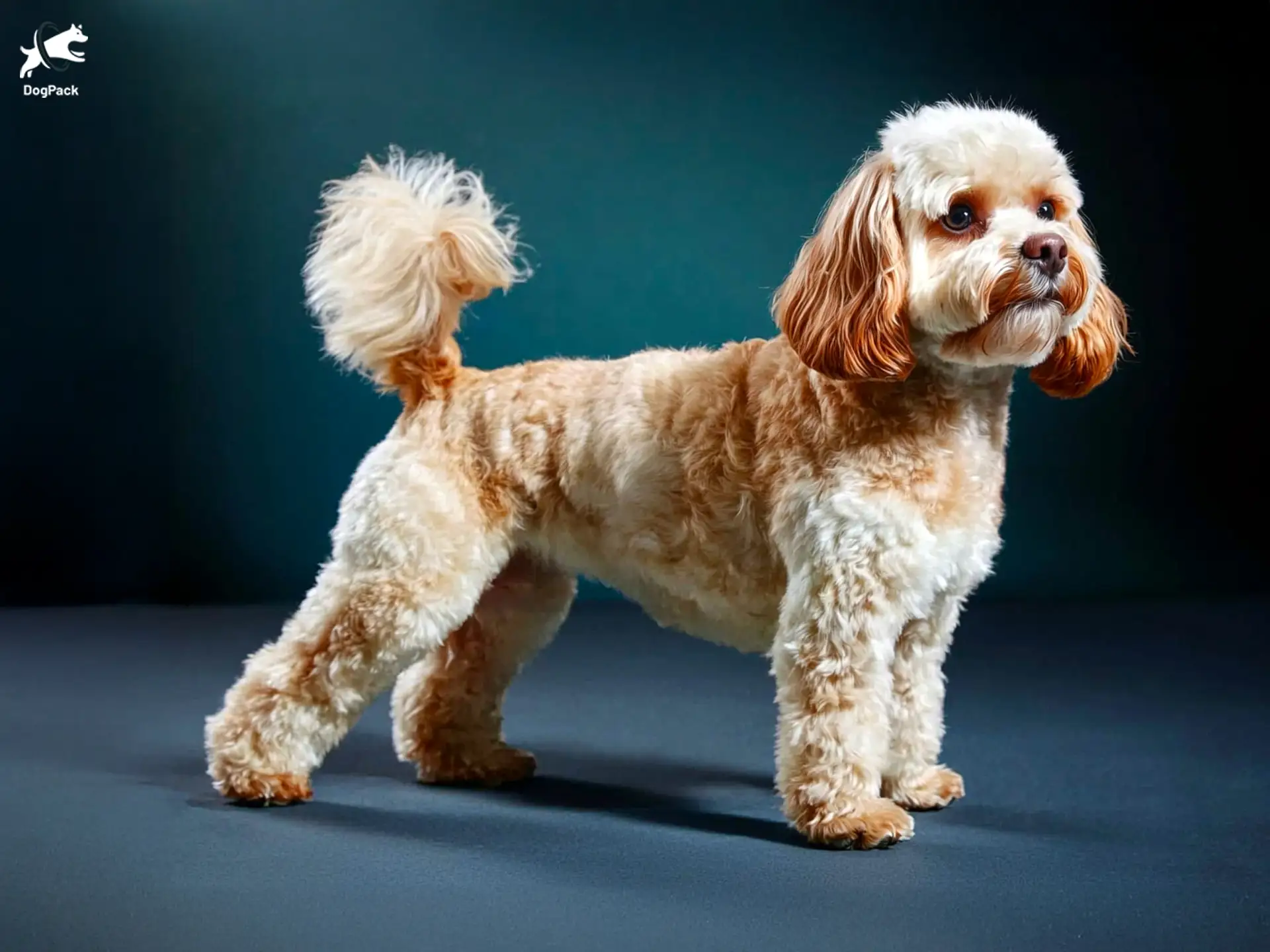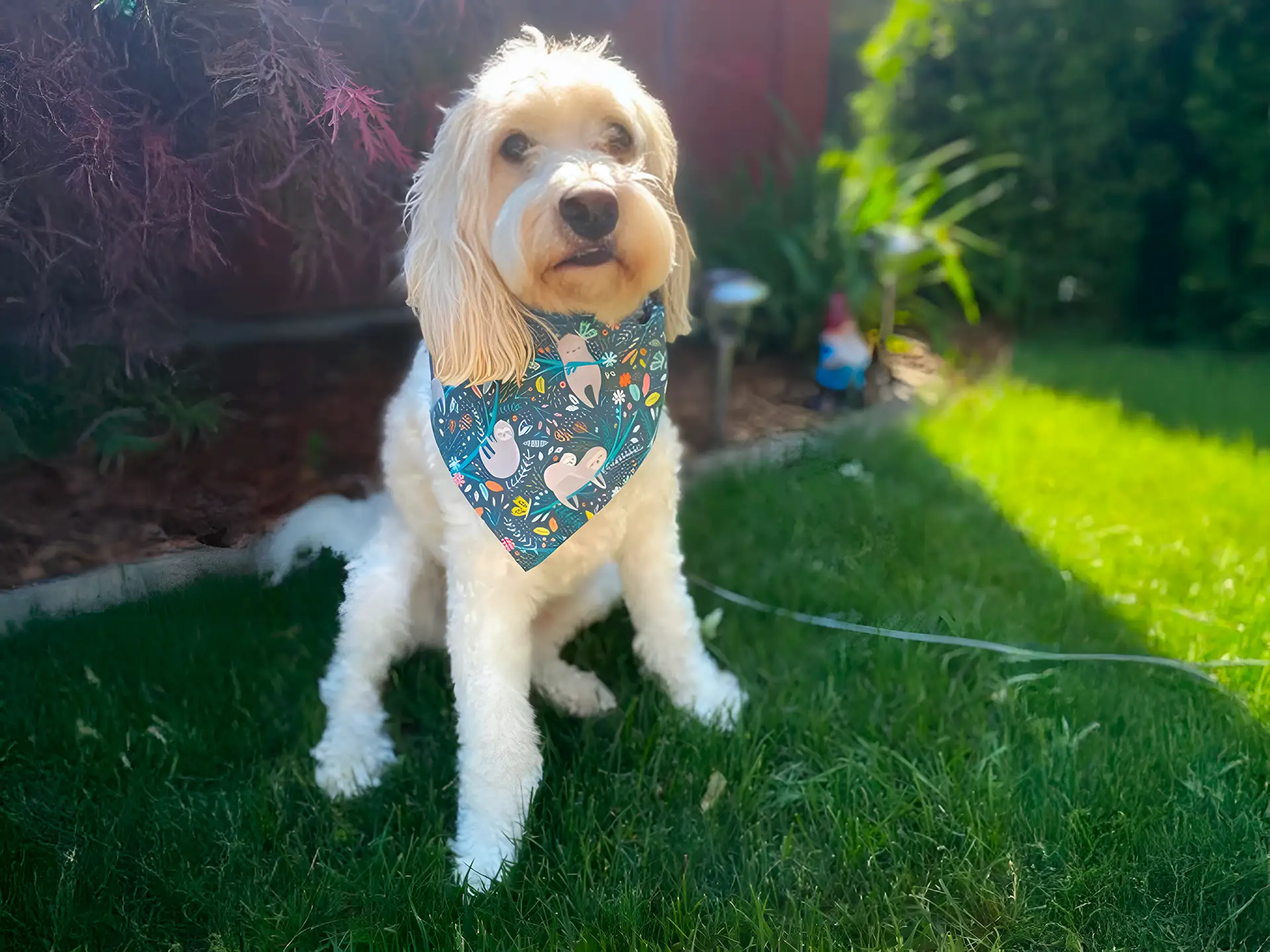Cockapoo Dog Breed Info & Overview
The Cockapoo, a charming blend of the intelligent Poodle and the affectionate Cocker Spaniel, is beloved for its friendly disposition and adaptability. Known for its low-shedding coat and easygoing nature, this hybrid thrives in diverse living environments, from city apartments to country homes. With its playful spirit and loving personality, the Cockapoo makes a delightful companion for all types of households.
Characteristics
Pictures
Breed History
The Cockapoo’s history dates back to the 1950s in the United States, making it one of the earliest “designer” dog breeds. Breeders aimed to combine the Poodle’s hypoallergenic coat with the Cocker Spaniel’s gentle temperament. The result was a delightful hybrid that quickly gained popularity for its charming personality and low-shedding fur.
Initially bred accidentally, the Cockapoo soon became a sought-after companion dog. Enthusiasts appreciated the breed’s adaptability and affectionate nature. Over the decades, intentional breeding programs were established to standardize the Cockapoo’s characteristics, although they are still not recognized as a purebred by major kennel clubs.
The name “Cockapoo” is a simple blend of its parent breeds: the Cocker Spaniel and the Poodle. This hybrid has since inspired the creation of many other designer breeds, but the Cockapoo remains a favorite due to its intelligence, friendly demeanor, and suitability for various households.
Temperament, Personality
Cockapoos are renowned for their affectionate and sociable nature. They thrive on human interaction and are eager to please, making them excellent companions for families and individuals alike. Their friendly disposition means they usually get along well with strangers and are quick to make new friends.
When it comes to children, Cockapoos are patient and playful. They enjoy participating in family activities and are gentle enough for households with kids. Their energetic spirit makes them great playmates, while their intuitive nature allows them to adjust their behavior around younger or more fragile family members.
In households with other pets, the Cockapoo typically adapts well. Their easy-going temperament means they can coexist peacefully with other dogs and even cats, especially when socialized early. They are not overly territorial and often welcome new animal companions into their pack.
Physical Characteristics
Cockapoos vary in size depending on the Poodle parent used in breeding, ranging from toy to miniature sizes. Generally, they stand between 10 to 15 inches tall (25–38 cm) and weigh around 12 to 24 pounds (5–11 kg). This makes them a versatile size for both apartment living and larger homes.
One of the most distinctive features of the Cockapoo is its coat, which can range from tight curls to loose waves, inherited from their Poodle lineage. Their fur is usually low-shedding, making them a potential option for people with allergies. Coat colors vary widely, including cream, red, black, and parti-colors.
The Cockapoo often has expressive, round eyes that exude warmth and curiosity. Their ears are typically floppy like the Cocker Spaniel’s, adding to their endearing appearance. With a sturdy yet compact build, they are both agile and robust, suited for various activities.
Health Issues
While Cockapoos are generally healthy, they can inherit certain health issues from their parent breeds. Common concerns include hip dysplasia, progressive retinal atrophy (PRA), and ear infections due to their floppy ears. Regular veterinary check-ups are essential to monitor and prevent these conditions.
Eye problems like cataracts can also occur, so it’s important to have their eyes examined regularly. Additionally, Cockapoos may be prone to allergies and skin conditions, which can be managed with proper diet and grooming. Maintaining a healthy weight through balanced nutrition and exercise helps reduce the risk of joint issues.
To ensure your Cockapoo stays in optimal health, consider genetic testing when purchasing from a breeder. Early detection of potential hereditary conditions can lead to better management. Regular dental care is also crucial, as smaller breeds can be susceptible to dental issues.
Grooming Needs
Cockapoos require moderate grooming due to their curly or wavy coats. Regular brushing—ideally a few times a week—helps prevent matting and tangles. Their low-shedding fur doesn’t mean maintenance-free; consistent care keeps their coat healthy and comfortable.
Professional grooming every 6 to 8 weeks is recommended to trim their coat and keep it manageable. This also includes trimming the hair around their eyes and ears to prevent irritation and infections. Bathing should be done as needed, using a gentle dog shampoo to maintain skin health.
Don’t overlook dental hygiene and nail care. Brushing your Cockapoo’s teeth several times a week helps prevent dental diseases. Regular nail trims are essential, especially if your dog isn’t naturally wearing them down through activity. Cleaning their ears weekly can help prevent ear infections common in breeds with floppy ears.
Exercise Requirements
Cockapoos have moderate to high energy levels and benefit from 30 to 60 minutes of exercise daily. This can include walks, playtime in the yard, or interactive games like fetch. Regular activity helps keep them physically fit and mentally stimulated.
These dogs enjoy a variety of activities, from agility training to simple obedience exercises. Their intelligence and eagerness to please make them excellent candidates for canine sports. Mental stimulation is just as important as physical exercise for the Cockapoo.
Social outings to dog parks or playdates with other dogs can also be beneficial. Cockapoos are social creatures and enjoy interacting with both humans and other animals. Always ensure that activities are appropriate for their age and fitness level to prevent injury.
Training Tips
Cockapoos are intelligent and highly trainable, thanks to their Poodle and Cocker Spaniel heritage. Positive reinforcement techniques work best, using treats and praise to reward good behavior. Early training and socialization are key to developing a well-mannered adult dog.
They may occasionally exhibit stubbornness, so consistency is important. Short, engaging training sessions keep their attention and make learning fun. Cockapoos respond well to variety, so mixing up commands and activities can enhance their training experience.
Avoid harsh corrections, as Cockapoos can be sensitive to tone and body language. Building a strong bond through trust and positive interactions will yield the best results. Enrolling in puppy classes can provide structured learning and socialization opportunities.
Nutrition, Diet
Cockapoos require a balanced diet formulated for small to medium-sized dogs with moderate energy levels. High-quality dry kibble rich in protein supports their active lifestyle and maintains muscle mass. Ingredients like chicken, fish, or lamb are excellent protein sources for this breed.
Portion control is crucial, as Cockapoos can be prone to overeating and weight gain. Typically, they need about 1 to 1.5 cups of food per day, divided into two meals. However, the exact amount can vary based on their age, size, metabolism, and activity level. Consulting your veterinarian for personalized feeding recommendations is advisable.
Some Cockapoos may have food sensitivities or allergies, particularly to grains or certain proteins. If you notice signs of allergies like itching or gastrointestinal upset, a limited ingredient diet may be beneficial. Omega-3 fatty acids can also support their skin and coat health, which is important for this breed.
Adoption, Breeders
When looking to add a Cockapoo to your family, it’s important to choose a reputable breeder who prioritizes health and temperament. Ask breeders about health clearances for both parent dogs, especially for genetic conditions common in Poodles and Cocker Spaniels.
Alternatively, consider Cockapoo rescue organizations that specialize in rehoming this breed. Adopting can provide a loving home to a dog in need. Groups like Cockapoo Rescue offer resources for adoption and information on available dogs.
Visiting the breeder or rescue facility allows you to observe the environment where the puppies are raised. This can give you insight into their early socialization and care. Always avoid puppy mills or pet stores where the breeding conditions are questionable.
Family Pet?
Cockapoos make excellent family pets due to their affectionate and adaptable nature. They bond closely with family members and thrive in environments where they receive plenty of attention and interaction. Their playful spirit is a great match for active households.
With children, Cockapoos are generally patient and gentle. They enjoy participating in games and can be a source of endless entertainment for kids. Supervision is recommended with very young children to ensure respectful interactions on both sides.
In multi-pet households, Cockapoos usually get along well with other dogs and cats, especially when introduced properly. Their friendly demeanor helps them integrate smoothly into families with existing pets. Early socialization enhances their ability to interact positively with other animals.
Right For You?
If you’re seeking a companion that’s affectionate, intelligent, and adaptable, the Cockapoo could be a perfect match. They suit a variety of living situations, from apartments to houses with yards. Their moderate size and low-shedding coat make them manageable for many households.
Cockapoos require regular exercise and mental stimulation, so they’re best suited for owners who can dedicate time to walks, play, and training. If you have an active lifestyle or enjoy engaging with your pet, this breed will fit right in.
Consider your availability, as Cockapoos thrive on companionship and may experience separation anxiety if left alone for extended periods. If you can provide a loving, engaging environment, the Cockapoo is likely to become a cherished member of your family.
Conclusion
The Cockapoo combines the best traits of the Poodle and Cocker Spaniel into one delightful package. With their friendly temperament, intelligence, and low-shedding coat, they make wonderful companions for a wide range of owners. Whether you’re a first-time dog owner, a family with children, or someone looking for a loyal friend, the Cockapoo has much to offer.
Their adaptability to different living environments and compatibility with other pets further enhance their appeal. While they require regular grooming and exercise, the joy they bring to their households is immeasurable. If you’re prepared to invest time and love into this affectionate breed, the Cockapoo could be the perfect addition to your life.
FAQs
-
Are Cockapoos hypoallergenic dogs?
While no dog is truly hypoallergenic, Cockapoos are considered low-shedding due to their Poodle heritage. This makes them a better option for people with allergies, but it’s best to spend time with the breed to ensure compatibility.
-
How big do Cockapoos typically get?
Cockapoos usually stand between 10 to 15 inches tall and weigh between 12 to 24 pounds, depending on whether a Toy or Miniature Poodle was used in breeding. Their size makes them suitable for various living spaces.
-
Do Cockapoos bark a lot?
Cockapoos are not excessive barkers by nature, but they may vocalize to alert their owners or express excitement. Proper training and socialization can help manage any unwanted barking behaviors.
-
What colors do Cockapoo coats come in?
Cockapoos can have a wide range of coat colors, including cream, apricot, red, chocolate, black, and parti-color combinations. Their coats can be curly like a Poodle’s or wavy like a Cocker Spaniel’s.
-
How long do Cockapoos typically live?
Cockapoos have a lifespan of about 12 to 15 years when properly cared for. Their longevity depends on factors like diet, exercise, genetics, and regular veterinary check-ups to maintain good health.
Breed Ratings
Cockapoos are highly intelligent thanks to their Poodle and Cocker Spaniel heritage, making them quick learners and easy to train.
This breed is exceptionally playful and enjoys engaging in games and activities with family members of all ages.
With moderate to high energy, Cockapoos need regular exercise to stay content but are not overly demanding.
Cockapoos are low-shedding dogs, making them a good choice for those who prefer less hair around the home.
They have a low to moderate prey drive, so they're less likely to chase after small animals but supervision is still recommended.
While they don't shed much, their coats require regular brushing and professional grooming every few weeks.
Their eagerness to please and intelligence make Cockapoos highly trainable with positive reinforcement methods.
Cockapoos prefer company and may experience separation anxiety if left alone for long periods.
They may bark to alert but are not excessive barkers; training can help manage vocal tendencies.
Cockapoos have minimal drooling, which is a plus for owners who prefer a tidier pet.
Generally sociable, they get along well with other dogs when properly socialized from a young age.
Cockapoos are relatively healthy but can be prone to certain genetic conditions; regular vet care is important.












